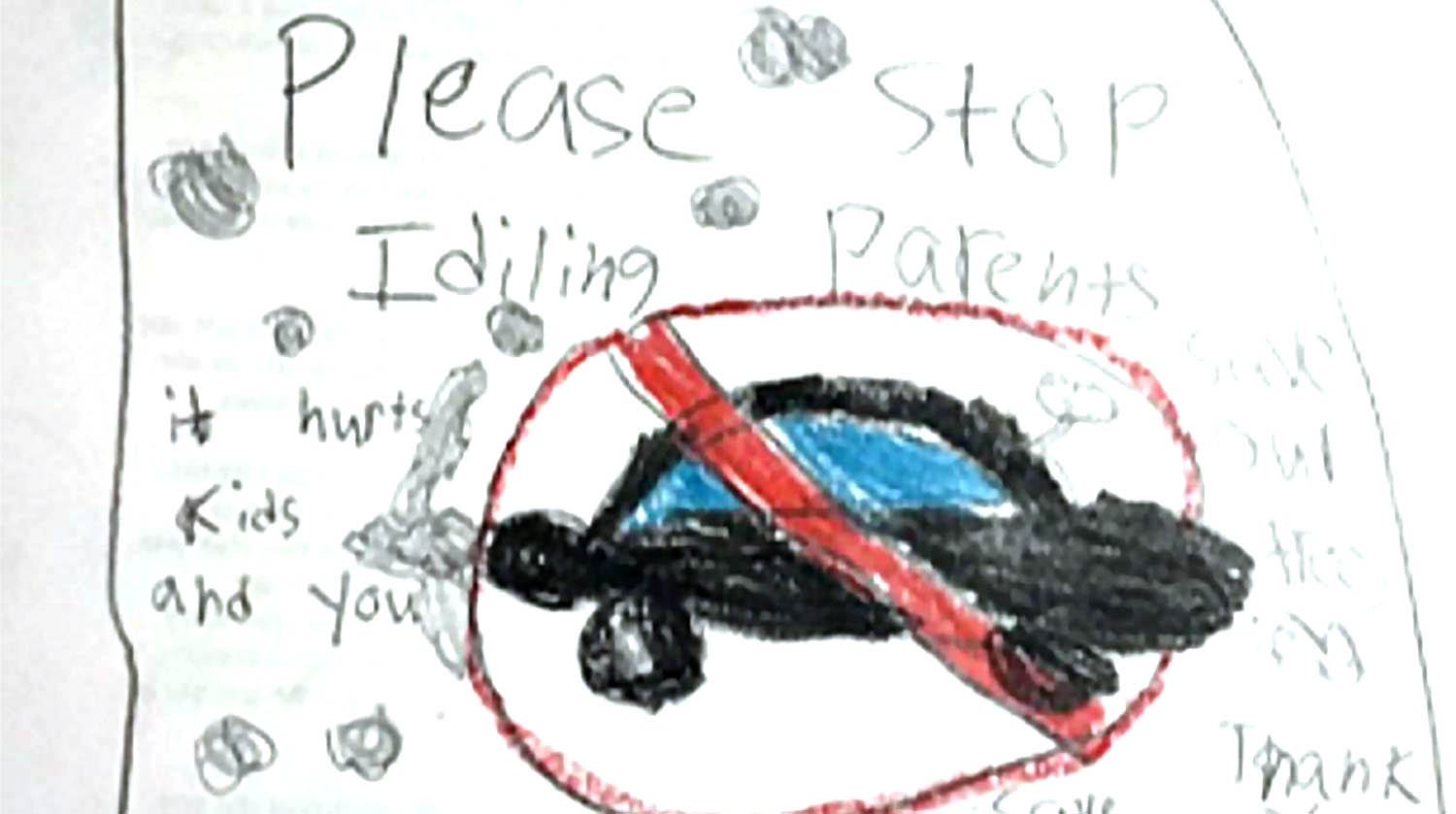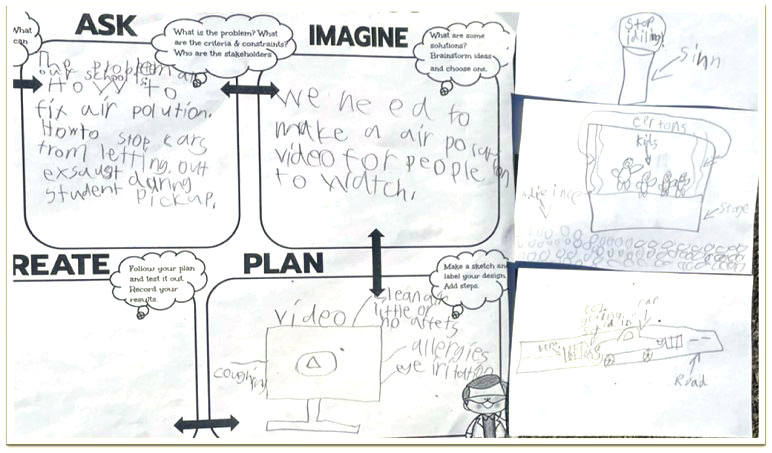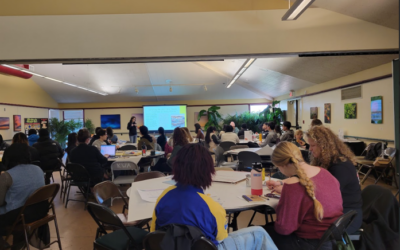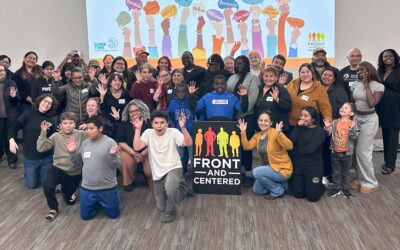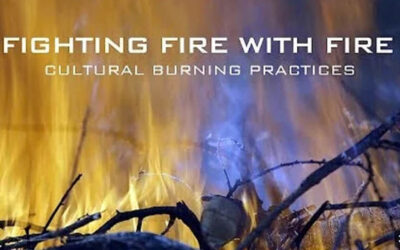Guided by teachers participating in IslandWood’s “Community-Centered Climate Action” teacher professional learning course, students make a change in their school community.
At Emerald Heights Elementary, Karrie Coombe and Chantal Fleck’s students took on a global problem at a schoolyard scale with their “No Idling” campaign. After investigating the phenomenon of air pollution at their school and learning about its global implications, the students followed a Next Generation Science Standards (NGSS) aligned Engineering Design Process to ask questions, define the problem, then imagine, plan, and act on a solution for their school and community.
For the Emerald Heights students, becoming change makers took a few different directions. They created videos to educate their community, made signs to display where families could see them, and even wrote a letter to their senator.
The Emerald Heights students aren’t alone! Fifty-five 3rd-5th grade teachers have participated in IslandWood’s “Community-Centered Climate Action” professional learning course. Students at other schools across the state have written to their school districts, built school gardens, created poems and art, calculated carbon footprints, and more.
IslandWood’s focus on hands-on and place-based outdoor education informs the flexibility of the curriculum teachers follow. As teachers go through the lessons, they are encouraged to take students outside to explore their school grounds and make calculations using real data collected by the students themselves. Students then come up with solutions tailored specifically to the constraints of their local environment and the resources available to them.
The course delves into both the science of air pollution and the social-emotional learning needed to think about global problems like climate change. Its three central themes (Equity & Justice, Engineering Solutions, and Local Climate Action) can even carry over into the other subjects for teachers who can’t fully implement the curriculum. Guest speakers from local community organizations, including Christian Poulsen from Duwamish River Community Coalition and Noemie Maxwell from Defenders of North SeaTac Park, spoke to teachers about their work and served as inspiring examples of real community-level action. One teacher said of Poulsen’s presentation on equity, advocacy, and clean air in the Duwamish Valley, “without this knowledge about the inequity in climate justice, [my students] will not be citizens who try to support change in the future for ALL stakeholders.”
As for teachers Karrie and Chantal, they have found ways to adapt the storyline to other local problems in their second year joining the course as teacher-facilitators. To hear from Karrie and Chantal’s students in their own voices, watch this video about their work, “No Idling.”

